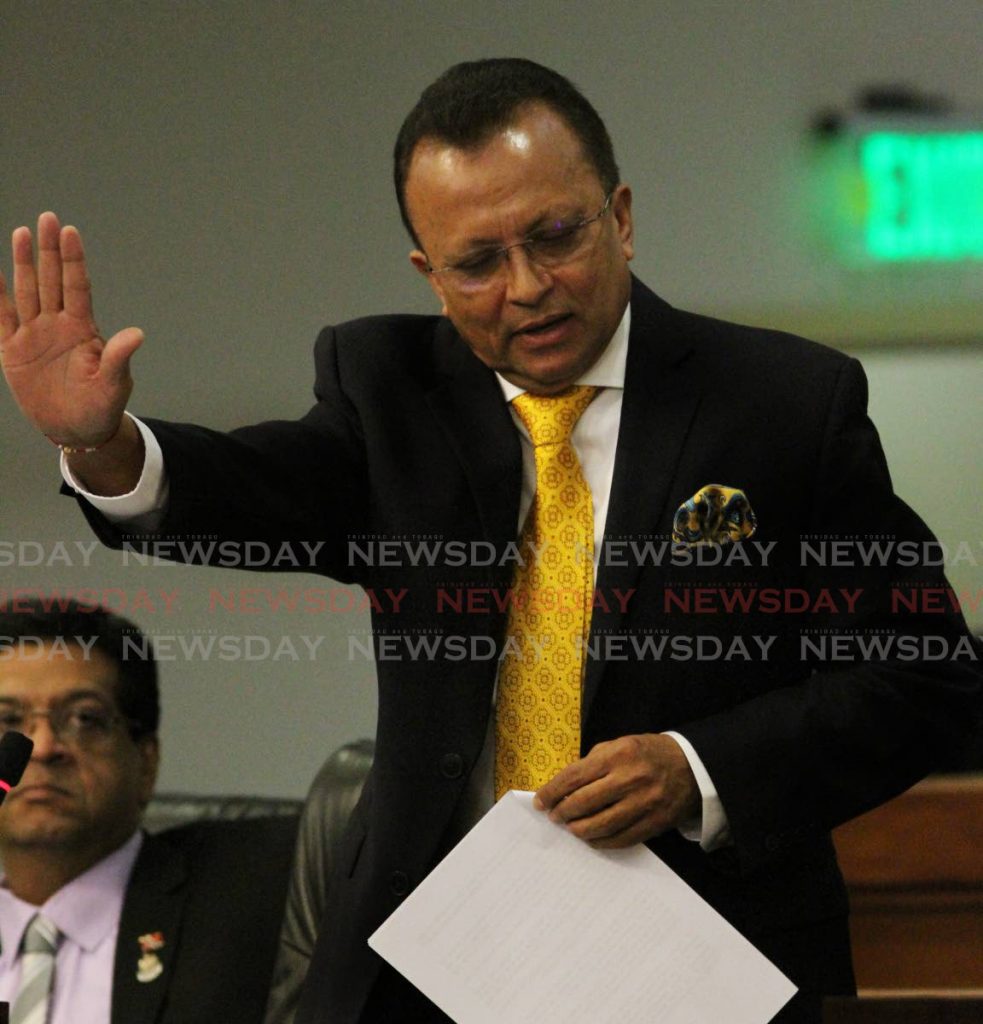Ganga: No proof of need for new $100 bill

CHAGUANAS West MP Ganga Singh in the House of Representatives asked what was the genesis of the move to replace the existing $100 banknote.
“There is no verifiable data existing to show the level of counterfeiting. It all appears very speculative at this point in time,” he said.
On Friday, during debate on the Miscellaneous Provisions (Proceeds of Crime and Central Bank) Bill 2019, Singh said National Security Minister Stuart Young gave no hard data to show the need for demonetisation.
“We know of the virtual chaos in India as a result of the dramatic intervention, like what has happened here.” Singh traced the fate of demonetisation elsewhere, citing a South Western University article. While successful in Germany in 1923, US in 1969 and the UK in 1971, he said it had once failed very badly in Myanmar, Nigeria, the former Soviet Union, North Korea and Zimbabwe.
“When you looks at what’s happening worldwide it is not all a good experience.” Singh said demonetisation was not so effective against money launderers who invest in real estate and other things.
He said Imbert had not explained his timing.“The business groups ask why did you choose this period. This will work against the business community in this period.”
Otherwise he said the bill has a good objective. “The real winners are the banks, because you have to go to the banks. You can expect deposits may increase.” He said dirty money might be deposited during the demonetisation period. Singh said “real” launderers whose proceeds now go through the formal economy will be the real winners in the demonetisation process.
He called for more facts from the minister but cited the lessons of scholarly learning. “The real estate sector will be in trouble. It will die. That has been the experience of other countries.
“The auto sector and auto trade will suffer as a result because they are principally cash businesses.”
Singh recalled India. “Ninety-nine per cent of the demonetised rupees were exchanged for new currency, suggesting criminals and corrupt businessmen had managed to preserve their wealth.
“They took their money and out it into the system and the dirty money because clean money.”
He said demonetisation alone cannot curb dirty money. Singh asked why the bill did not refer to credit unions during demonetisation. Amid any requisite ministerial input in demonetisation, Singh said the Central Bank’s independence must be kept. He asked why MPs should pass a bill to let the minister and Central Bank create the conditions for the process of exchanging the old for the new notes. “The Central Bank has to be transparent and open. Customers must have confidence in the banking sector.”
He objected to the finance and national security ministers being designated to define the size of a “large transaction” that banks must red-flag compared to the existing figure of $90,000. Singh lamented that the Government might be making it all up as it goes along. “Law cannot be made on the basis of some amorphous and nebulous concept. It has to have some certainty.”
Singh was worried about the sense of urgency that had been created in this bill, saying it sets the stage for bad legislation. It has too many uncertainties for MPs to just blindly support.
He said the real money laundering occurs in real estate, gold and painting, and it was mere rum shop talk to speak of people having barrels of buried banknotes. “There are too many omissions, too much speculation for us to blindly support this legislation,” Singh concluded. Despite Singh’s caution, the Opposition voted in support of the bill which was unanimously passed.


Comments
"Ganga: No proof of need for new $100 bill"